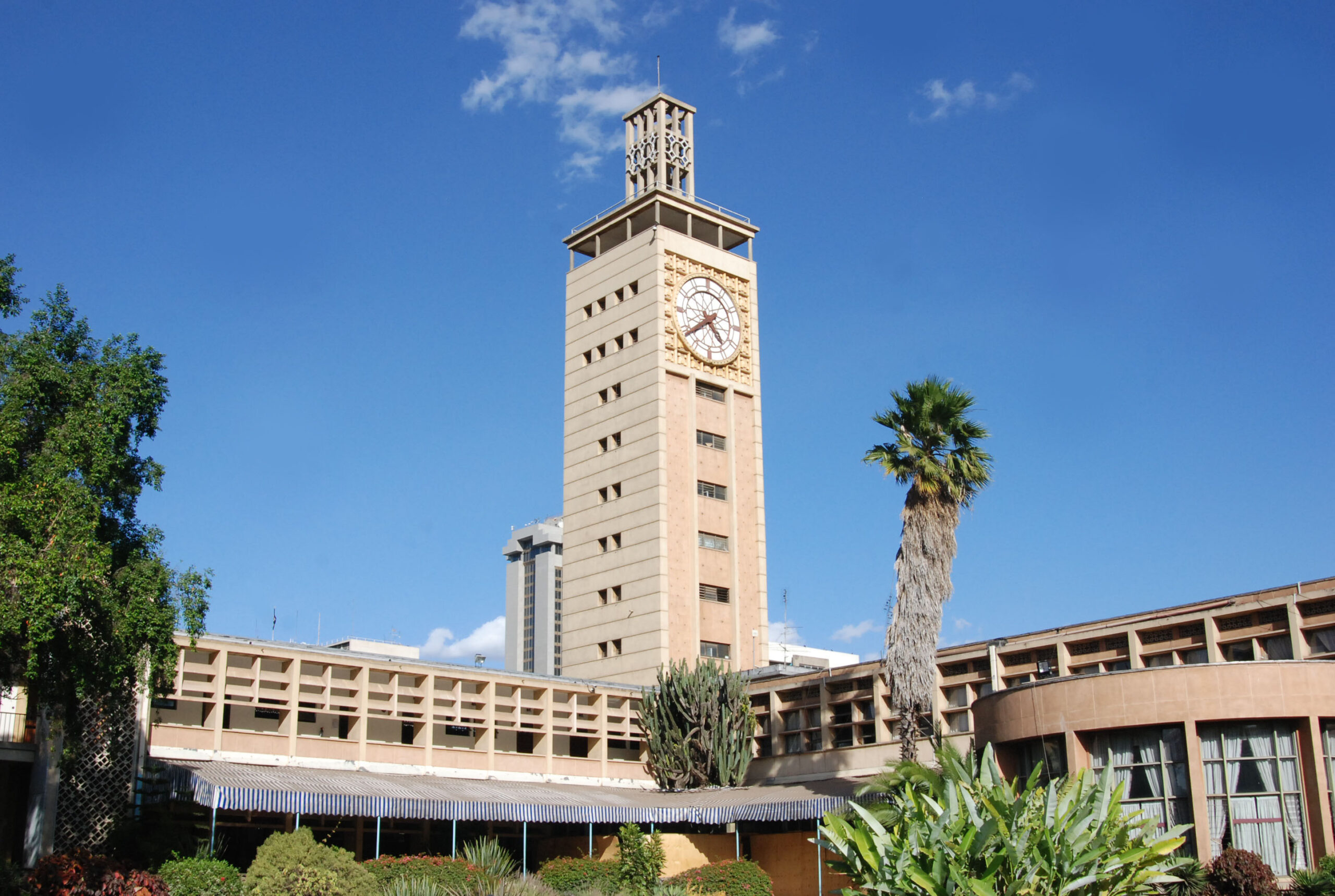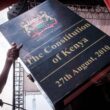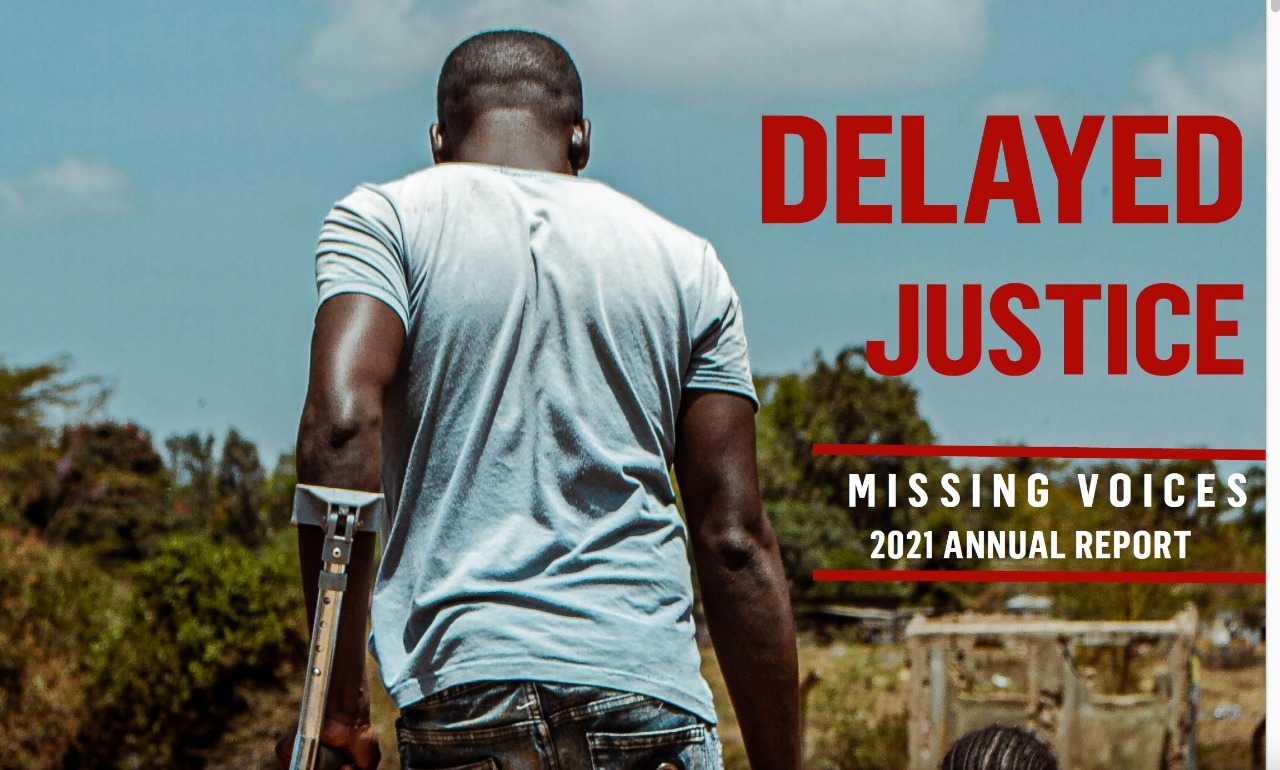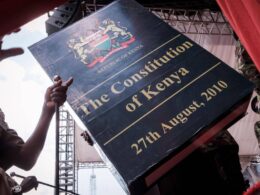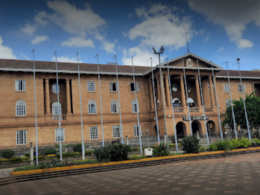By Susan Kendi
The Missing Voices Coalition (MVC) has launched a 60-page report titled “Delayed Justice,” documenting Police Killings and Enforced Disappearance (ED) in Kenya. The report focuses on delayed justice and its impact on those seeking redress through the criminal justice system. The report concludes that Pangani Police Station in Nairobi leads with the highest number of police killings in Kenya.
The Missing Voices is a coalition of 15 Civil Society Organisations, including ICJ Kenya, Amnesty International, and the International Justice Mission (IJM), aiming to end Extrajudicial killings and Enforced Disappearances in Kenya. Since its inception in August 2018, Missing Voices has documented and verified data on police killings and enforced disappearances (EDs) and held several campaigns to disseminate our research while pushing the general public to report incidents of police misconduct[ES1] .
The MVC report launched on Wednesday, April 27, at the Nyayo Gardens in Nakuru, found that there have been 219 police killings and enforced disappearances in 2021. Out of the total number, 187 cases were of police killings and 32 enforced disappearances. Of the 32 cases of EDs, two of the victims were later found alive after public outcry and campaigns by Civil Society Groups.
According to the report, in 2021, 30 cases of police killings are reportedly associated with Pangani Police Station. Every month there was a case of officers from Pangani being accused of murder, except for June 2021.
“In Mathare, Pangani police are largely known as the enemy of the people. How can they police us when they are killing our young men, beating our women, and taking our hard-earned money from us? They’ve caused serious harm to our community. Because of their brutality and violence, our people live in fear,” said Wanjira from Mathare Social Justice Center.
In Kenya, no law expressly speaks to enforced disappearances; however, there are other constitutional and legal provisions that one can refer to in applying international and regional treaty obligations. Kenya is a signatory to the international bill of rights treaties, including the International Convention for the Protection of All Persons from Enforced Disappearance. However, Kenya is yet to ratify and domesticate the convention on enforced disappearances.
Whenever April 19, 2016, is mentioned, Stella reflects on the loss of her first-born son Francis Kioko who was in High School, Form three, at the time of his death. Her story is one of those documented in the 2021 Missing Voices Annual Report. Stella told the Coalition that her son was killed alongside seven of his group members at a garbage collection meeting. They were all told to lie down on the ground in an open field before the police opened fire, shooting them one after the other.
Her second-born son, who was in form one, had gone to prepare lunch for his brother when he heard gunshots and called for their father, who was at home. Their father rushed to the place but couldn’t save their son.
The family has faced several challenges in seeking justice for their son Kioko. According to the “Delayed Justice” report, the police tried to tamper with the post-mortem report at the morgue. They postponed it three times and later wrote incorrect death dates on the post-mortem sheet. Stella’s family was also monitored, and information leaked to the police blocking their efforts to collect evidence that would be used in Court. One witness to the murder, John, was constantly threatened by the police, at one point beaten and upon discharge from hospital he was found dead in a field. This frightened away other witnesses in the case.
The Independent Policing Oversight Authority (IPOA) and Independent Medical Legal Unit (IMLU) collected evidence presented at Milimani Law Court, and a case was opened.
“Sometimes, I would receive pictures of myself taken secretly while I was in Court. Other times I would be stopped by the police and searched. The police wanted to steal vital documents related to my son’s case. I was told by the police officer who killed my son that I would also end up dead. I told him that if death was the price I had to pay, so no child is wrongfully executed, then let it be so,” narrated Stella.
In December 2020, a date for the judgment hearing was set; however, the case was later referred to Makadara Law Courts.
“It’s only through a just legal process where the police officer(s) responsible are sentenced and put in prison for murder will we have hope as a community. Otherwise, the killing of innocent children by the police will continue with impunity,” Stella added.
Stella is one of the three mothers from Eastlands who have lost their sons to police killings and are in the process of seeking judicial justice.
Her son’s case illustrates delayed justice; however, it is not the only one that has been dragging in the Court’s Corridors; the Mavoko 3 case is another that adds to the statistics. June 23, 2022, will mark the sixth anniversary of the disappearance and murder of International Justice Mission (IJM) lawyer Willie Kimani, his client Josephat Mwenda, and their taxi driver Joseph Muiruri. Their badly mutilated bodies were found a week after being arrested and murdered at River Athi in Ol Donyo Sabuk.
The case has experienced numerous adjournments since it began in November 2016. The hearing concluded on February 10, with 44 prosecution witnesses and 34 defence witnesses testifying in the case.
In their work, Missing Voices monitors face various difficulties documenting cases of extrajudicial killings and enforced disappearances. The challenges include: No law in Kenya criminalises enforced disappearances which makes it challenging for families to hold accused officers accountable, the monitors receiving threats from security agencies, unwillingness from witnesses and families to report cases and engage the criminal justice system because of lack of protection services and mistrust of the system, monitors experience psychological distress due to exposure of the cases and delayed justice due to backlog of cases at IPOA and lack of communication on the progress.
The Missing Voices Coalition makes six demands: the criminalisation of enforced disappearances through the enactment of laws or amendment of existing legislation; the Kenyan Government to ratify the Optional Protocol to the Convention against Torture and Other Cruel, Inhuman or Degrading Treatment or Punishment (OPCAT); and for the Witness Protection Agency to be allocated sufficient budget to effectively protect witnesses and families of persons who have been forcefully disappeared.
The Coalition further demands the expeditious disposal of cases on police killings and enforced disappearance, that the state oversight agencies, in collaboration with the judiciary and civil society organisations, develop a guideline that requires that a person under arrest be brought before a judge or Court and for the Office of the Director of Public Prosecutions (ODPP) to develop guidelines on the investigation of enforced disappearances.
Download Delayed Justice Report: Missing Voices – 2021 Annual Report



